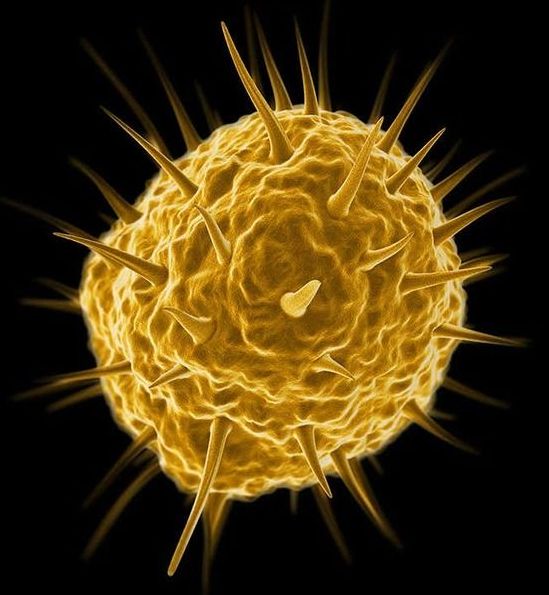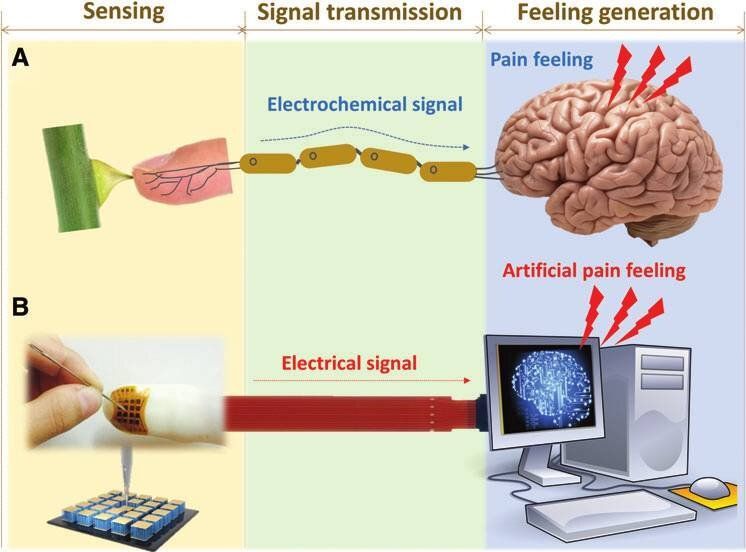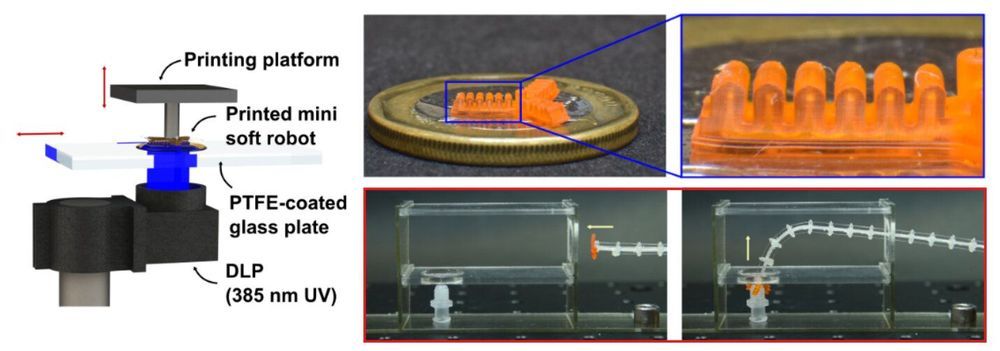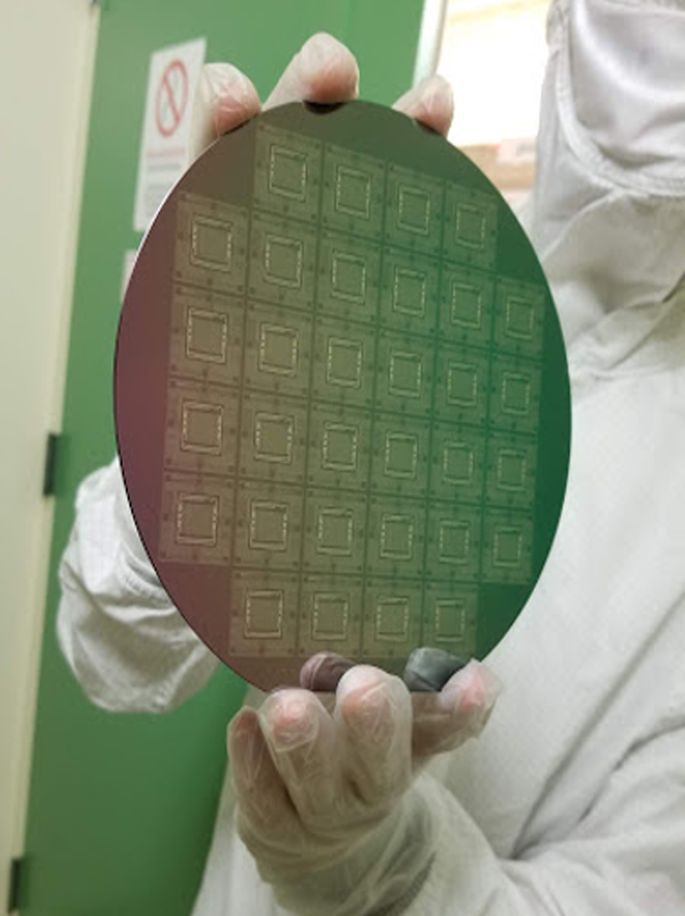Professor Jae Eun Jang’s team in the Department of Information and Communication Engineering has developed electronic skin technology that can detect “prick” and “hot” pain sensations like humans. This research result has applications in the development of humanoid robots and prosthetic hands in the future.
Scientists are continuously performing research to imitate tactile, olfactory and palate senses, and tactile sensing is expected to be the next mimetic technology for various applications. Currently, most tactile sensor research is focused on physical mimetic technologies that measure the pressure used for a robot to grab an object, but psychosensory tactile research on mimicking human tactile sensory responses like those caused by soft, smooth or rough surfaces has a long way to go.
Professor Jae Eun Jang’s team has developed a tactile sensor that can feel pain and temperature like humans through a joint project with Professor Cheil Moon’s team in the Department of Brain and Cognitive Science, Professor Ji-woong Choi’s team in the Department of Information and Communication Engineering, and Professor Hongsoo Choi’s team in the Department of Robotics Engineering. Its key strengths are that it has simplified the sensor structure and can measure pressure and temperature at the same time. Furthermore, it can be applied on various tactile systems regardless of the measurement principle of the sensor.







